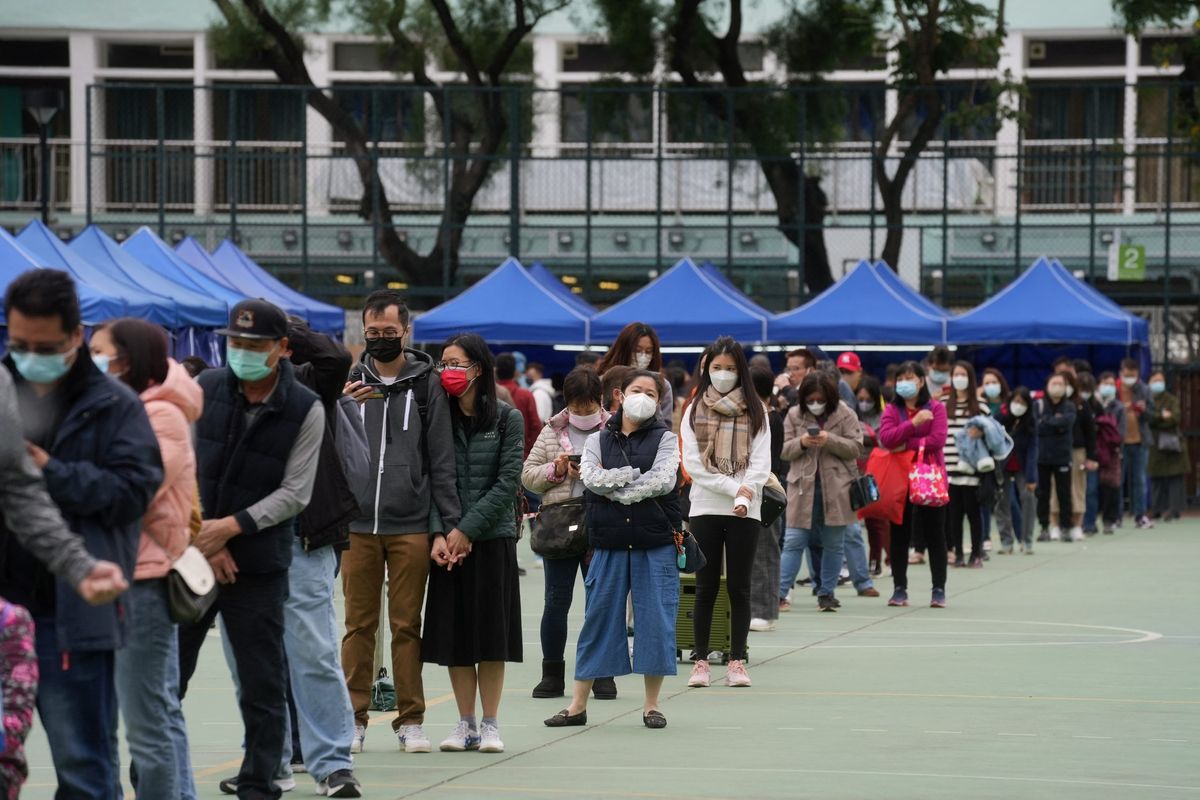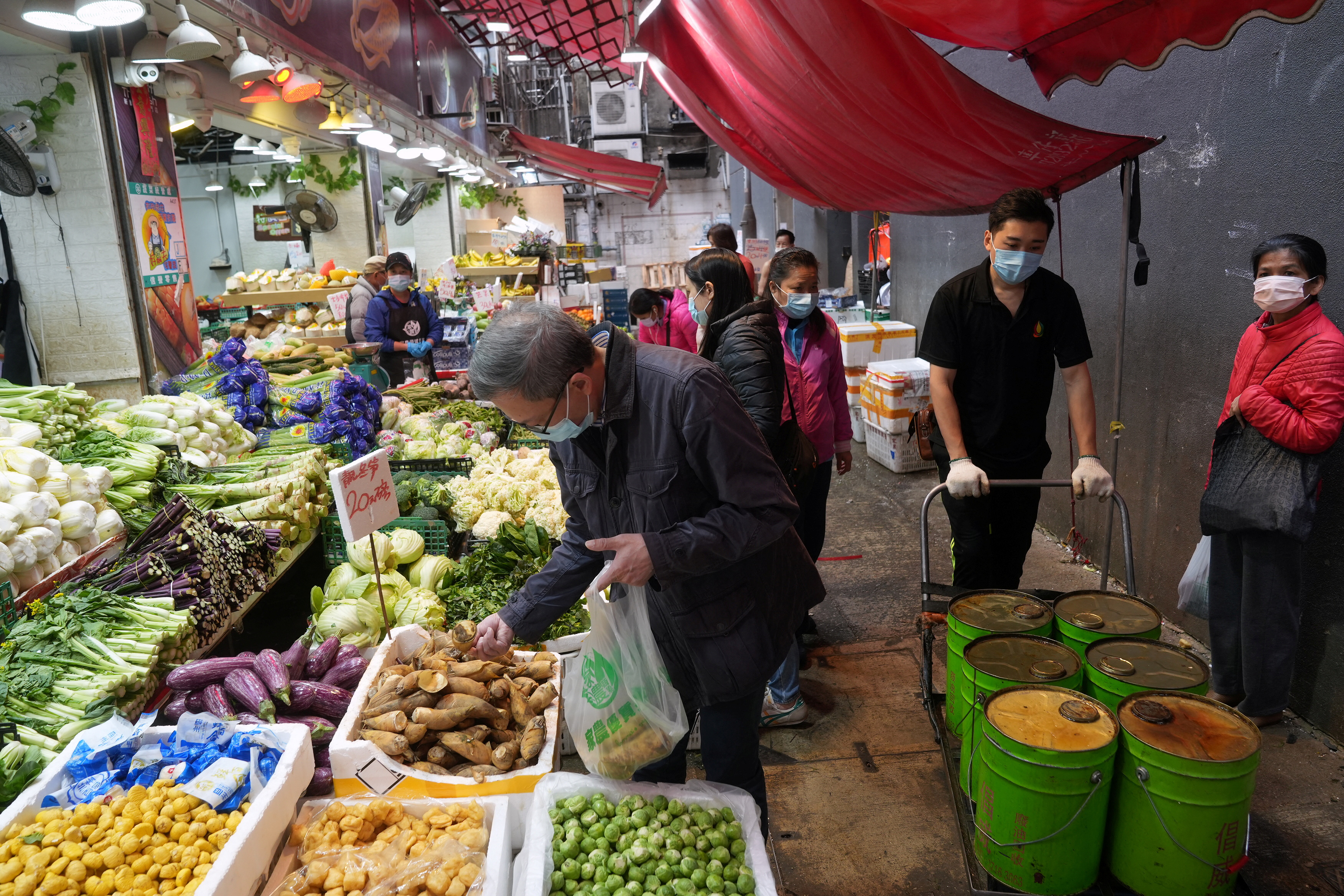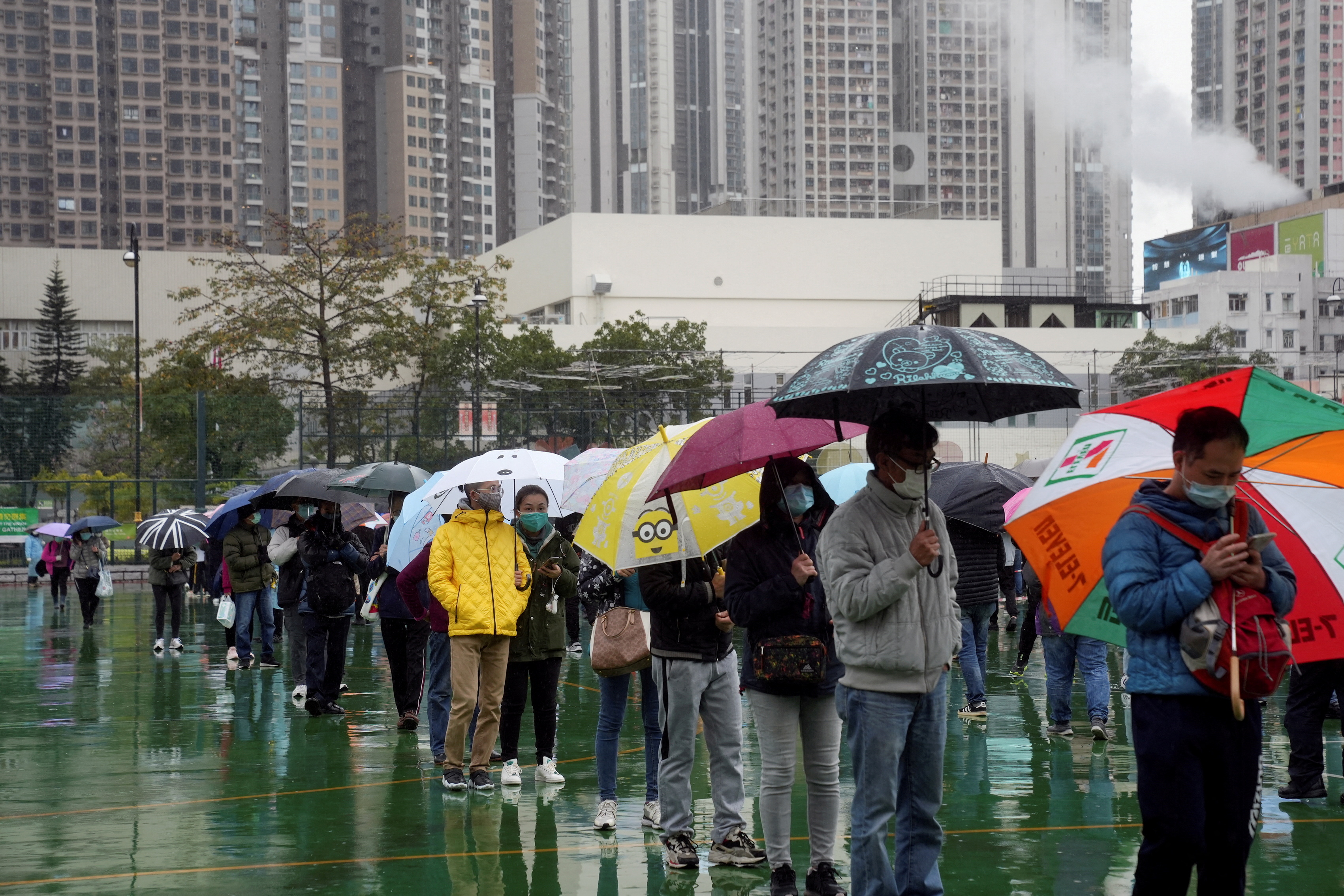What are Hong Kong’s COVID-19 rules? Here’s what you need to know

A few minutes every morning is all you need.
Stay up to date on the world's Headlines and Human Stories. It's fun, it's factual, it's fluff-free.
Most of you know that Hong Kong imposed some tough rules to uphold its dynamic zero-COVID-19 policy throughout the worst of the pandemic.
The most recent outbreak saw cases rise to over 30,000 for several consecutive days, and the city’s leader Carrie Lam then announced the city’s most stringent rules to date (which were imposed in early February) to remain in place until mid to end of April. The COVID regulations allowing the government to quarantine individuals, enforce mask-wearing and limit public gatherings have been extended for six months and will remain in place until September 30.
A government spokesperson explained that the extension is to “maintain the legal frameworks for the implementation of the relevant infection control measures," but this doesn’t necessarily mean that all of these restrictions will stay the same until the expiration of the extension. It is mainly so the government can adjust and respond to the situation more efficiently as it unfolds. As of now, there are no plans for a city-wide lockdown.
Most recently, Chief Executive Carrie Lam announced that the second stage of social-distancing relaxations was on schedule to kick off on May 19. However, in light of daily case numbers dropping below 300, she said a few things would be relaxed starting May 5. Most recently, more travel restrictions were eased from June 1.
As things continue to progress, Hong Kong is beginning to open back up and reduce restrictions. Below we have an updated list of the current restrictions in place and what to expect in the coming weeks.

Social distancing
- Carrie Lam has said social distancing regulations would be relaxed in three stages over three months starting from April 21. However, the current extension of the COVID laws to September allows the government some flexibility with this. Stage one saw many venues reopen and social distancing rules relaxed. Stage two opened bars, pubs and beaches, and people can exercise outside without a mask. In the last stage, most measures will be relaxed, but people will still need to use the vaccine pass and the LeaveHomeSafe app.
- On April 21, sporting venues like fitness centers and gyms reopened and indoor exercise venues no longer require masks. Religious venues, beauty and massage parlors, game centers, theme parks, museums, cinemas, libraries and playgrounds also reopened.
- On March 10, hair salons and barbershops opened to vaccinated patrons. These two venues are also included on the vaccine pass scheme, which means that people need to be vaccinated to enter the premises.
- Starting from April 21, public gatherings were extended from two people to four. Those caught breaching this will face a fine of HK$25,000 and imprisonment for six months for anyone who enables the gathering. This includes organizing, owning, controlling and knowingly allowing the gathering to take place. If caught, you may be discharged if you pay a fixed fine of HK$5,000.
- There is no longer a limit on private household gatherings.
- Lam announced that certain measures from stage two would be advanced and come into effect on May 5. This means beaches, swimming pools and water playgrounds are reopened, and people are allowed to exercise outside without a mask.
- Beginning May 19, stage two came into effect. Dining hours were extended to midnight, and bars can stay open until 2 a.m. with a max of 4 people per table. Restaurants may accommodate tables of eight, up from four. Other previously shuttered businesses like karaoke rooms, party rooms, mahjong parlors, nightclubs, cruises, etc. are reopened. Banquets are allowed to accommodate 120 people, and cinemas increased capacity from 50% to 85% (and you can eat and drink in the theaters again!).
- Bars and nightclubs are open, however patrons must provide a negative COVID test taken within 24 hours before entering. This can be a rapid antigen test complete with photo, date and time. This is primarily in response to recent outbreaks in the nightlife scene.
- Theme parks are reopened to 50% capacity. The capacity is extended to 85% in premises like cinemas, performance venues, museums, event premises and religious premises.
The vaccine pass
- The vaccine pass launched on February 24 and excludes all unvaccinated individuals from most public venues, like restaurants, malls and clubhouses. The vaccine pass requirement will be extended to schools, government offices and public organizations as well as elderly care facilities. There will also be random vaccine checks in public areas like shopping malls, supermarkets and wet markets.
- Vaccination records either in electronic form or paper form will be accepted.
- So far, the vaccine pass has not been extended to public transit, but government officials have warned that restrictions may get tighter as the situation develops. However, masks are required and there is no eating or drinking allowed on public transit.
- There are a few exemptions to the vaccine pass, including those getting tested for COVID-19 or vaccinated; passing through shopping malls to get to work or home; those attending government, medical or legal appointments and those entering a venue for a takeaway.
- Now, what does “vaccinated” mean for the sake of the vaccine pass? Currently, you need to have had three doses from the end of May.
- The vaccine pass exempts those who are ineligible because they’re too young or can’t get vaxxed, but they’ll need proof from a doctor.
- From the end of June, all adults who were inoculated more than nine months ago will need a booster shot, and 12- to 17-year-olds will be required to get a second dose six months after the first.
- Stage three of the vaccine pass was brought forward from June to May 31. By May 31, all applicable individuals except special groups under the vaccine pass need to have received the third dose. Additionally, during the period of stage three from May 31 onwards, the grace period for people aged 12 or above to receive the third dose will be shortened by three months to six. For those whose second dose was received within six months, their vaccine pass is still valid but they must receive the third dose within six months after receiving the second dose for continuing use of the vaccine pass.

Work and employment
- The Hong Kong government created a round of COVID-19 relief funds worth HK$26 billion. A HK$10,000 subsidy will be given to people who have become temporarily unemployed due to the latest outbreak. This will be applicable to workers who lost their jobs after the fifth wave, which started in December of last year.
- Frontline workers, such as cleaners, security guards and others in high-risk jobs will also be disbursed subsidies of HK$2,000 per month for five months, starting from February.
- Employers can fire employees for not getting vaxxed without breaching labor laws.
Travel
- Incoming passengers, except children under the age of three or travelers transferring or transiting within Hong Kong, must display a negative PCR test before departure and go through seven days of quarantine upon arrival while being tested every day. If their PCR test appears negative on the fifth day followed by two negative rapid tests, they can leave. If they test positive, they will be sent to a community isolation hotel. Proof of the lab’s accreditation for the incoming test is no longer required.
- For those who recovered from COVID 14-90 days prior to their flight, medical documentation of a negative RAT result within 24 hours of boarding time, as well as an official recovery record in Chinese or English, will be required.
- The compulsory quarantine may shorten, but for now, Carrie Lam has said, “The period for quarantine order and the isolation order is still 14 days. But what the Centre for Health Protection has put in, which I think is a sensible move, is if you do an RAT, a rapid antigen test, on day six and day seven and if it turns out to be negative, then you will be regarded as discharged and you can resume your normal living.”
- All incoming travelers that are discharged early from compulsory quarantine will have to do a nucleic acid test on their ninth day of arrival in addition to the one they’re supposed to take on the twelfth day of arrival.
- Airline carriers will be given a warning and a HK$20,000 penalty if they break the flight suspension mechanism. Another breach within the following 10 days will result in prohibition from flying that route into Hong Kong for five days.
- The compulsory quarantine period for passenger flight crews is three days at a designated hotel plus 11 days of medical surveillance. The cargo crew are exempt from quarantine and will undergo 14 days of medical surveillance. Electronic wristbands are no longer required.
Schools
- Public primary schools resumed in-person classes. International and private schools were given the flexibility to reopen any time from April 19, with some starting the following week after a pre-scheduled Easter break. Students and staff have to submit to daily COVID testing. The vaccine pass applies for teachers and staff, not students.
Other regulations
- Hong Kong was planning on compulsory testing for all residents starting mid-March. But, this plan has been shelved for now. But, the government can issue a Compulsory Testing Notice requiring individuals who were present during a certain period at any specified venue to get tested. For those who don’t comply, there is a fixed penalty of HK$25,000 and imprisonment of up to six months.
- Lam said that COVID-19 test samples “might” be sent to the mainland for processing, but dismissed privacy concerns.
- The city pledged over HK$54 billion to fight the pandemic.
This article was last updated on June 16, 2022
You drive the stories at TMS. DM us which headline you want us to explain, or email us.







Comments ()